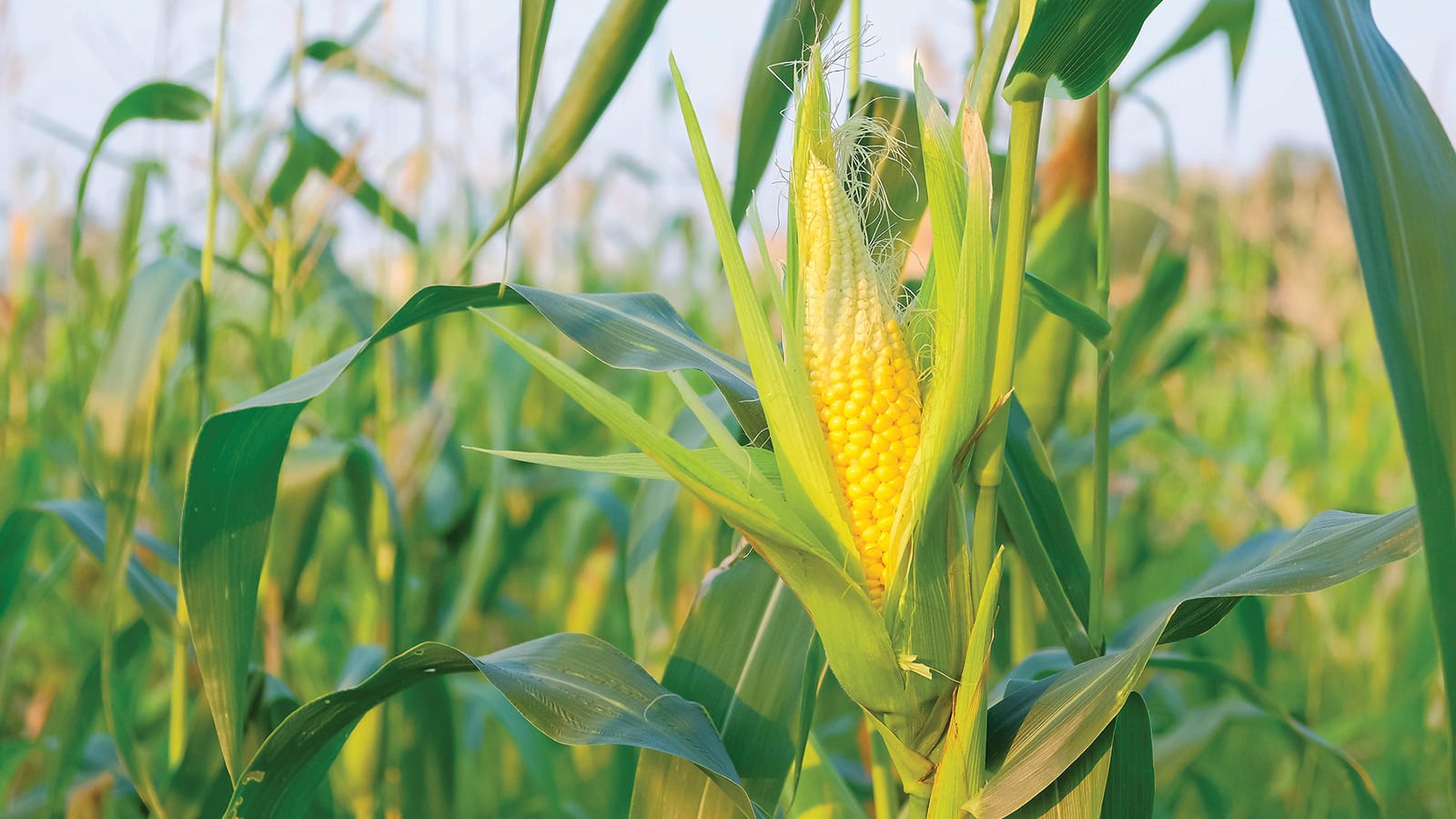A salute to farmers growing organic sweet corn
by Mike Neubeck and PCC staff
This article was originally published in September 2018

There’s very little organic corn on the cob to be found in most stores or farmers’ markets, even when corn is in season — and there are reasons for that. Most farmers would say growing corn organically is too time-consuming, too labor-intensive, and largely unprofitable.
This year, however, PCC is selling only organic sweet corn and its flavor is unbeatable. Please join us in appreciating the farmers who grow our food without hurting the environment, or us.
Growing conventional corn
According to a 2014 U.S. Department of Agriculture report, nonorganic corn producers apply more pounds of pesticide than any other crop — primarily insect-killers, weed-killers, and plant growth regulators. These toxins pollute waterways, pose risks to farm workers, and directly harm soil health.
Pesticides used by conventional corn growers — including atrazine, chlorpyrifos and glyphosate — do not target pests only. These inputs are broad toxins, killing many other organisms in the soil and causing soil quality to deteriorate over time, decreasing the soil’s ability to retain water. Direct exposure to these sprays is harmful to farm workers and runoff into waterways raises environmental and public health concerns.
These nonorganic growing methods, and the flawless-looking corn it produces, have led consumers to expect a perfect ear — without worms or damaged kernels. Many of us today are conditioned to not accept anything less and believe that organic just can’t deliver, which is wrong.
Organic systems
Instead of using insecticides, such as atrazine (a hormone disruptor) and chlorpyrifos (a nerve toxin), organic farmers must use other methods to control pests.
Corn has a challenging set of climactic, fertilization and pest management needs that must be addressed to grow a successful crop. The difference in the organic model is the amount of effort it takes. Farmers walk their fields to remove insects, rather than spraying, inter-plant other crops, and set pheromone traps to capture moths. These techniques can be cost prohibitive for commercial farmers.
Harvesting corn for our summer and fall table requires managing soil fertility for steady plant growth. To start with, corn is a heavy nitrogen feeder, but organic farmers can’t simply buy petroleum-based synthetic fertilizers for nutrients. They’re required to use compost and nourish the life and tilth of the soil. Preceding corn with a legume cover crop, such as fava beans, is a proven tool for building soil fertility. Legumes naturally transfer nitrogen from the air to the soil as they grow. Legumes also increase soil carbon content and water-holding capacity when the mature plants are worked into the soil.
Mighty earworm
Corn faces a mighty foe in the corn earworm. This earworm has a special fondness for laying eggs on corn silks and feeding on both the silks and the kernels. Conventional crop producers rely on an array of toxic chemical sprays and genetically engineered corn varieties designed to poison corn earworms.
In organic crop systems, the tools to control earworm damage must be used early and repeated frequently. The first application of approved organic sprays must be timed with the emergence of silks, as the sprays are largely ineffective against the hatched larvae that enter the ears. For maximum effectiveness these spray applications must be repeated every 3-4 days until the silks brown. Despite the best of efforts to control this pest, an organic corn eater may encounter earworm damage on occasion. As one of our growers has remarked, “if the corn doesn’t have earworms then it probably isn’t organic.”
Mike’s motto in these moments is, “trim the top and enjoy the remaining bounty.”
Fresh organic sweet corn is a staple in many summer and fall menus. As we savor its culinary delights, it’s worth appreciating the work that goes into growing this crop organically.
Mike Neubeck is the director of purchasing for the Organically Grown Company.
